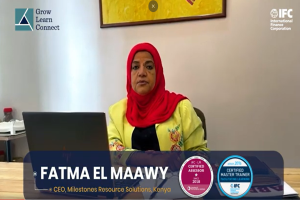Does Implicit Bias Impact Your Training?
In all likelihood, it probably does. “Implicit bias” is the attitudes or stereotypes that affect our understanding, actions, and decisions in an unconscious manner. Unlike plain “bias,” where we consciously choose to act in ways that support our biased views, implicit bias often causes us to act in ways that we do not necessarily realize are adversely affecting a specific group. News events of late have once again raised our awareness of racially-based bias and implicit bias. However, gender-based implicit bias is also a problem, and it is affecting the education we receive, both as children and adults.
A new book called Language and Gender: A Reader by Pia Pichler discusses the findings of dozens of studies since the early 1990s, which identify specific ways that implicit and stereotypical ideas about gender govern classroom dynamics in schools. According to a Time magazine article, various studies have found that school teachers:
- Spend up to two-thirds of their time talking to male students.
- Are more likely to interrupt girls but allow boys to talk over them.
- Tend to acknowledge girls but praise and encourage boys.
- Spend more time prompting boys to seek deeper answers while rewarding girls for being quiet.
- Ask boys to demonstrate in front of the class more frequently than girls.
- Look at boys when asking questions more than girls
Given that most trainers take their cues about how to facilitate from their most and least favorite teachers in school, it is not surprising that these same behaviors also creep into the training classroom.
What can you do to make sure you do not unintentionally disadvantage women in the classroom? These tips can help:
- Use gender-neutral, non-discriminatory language. (Example: Say “everyone” instead of “you guys”.)
- Alternate your examples between male and female names and pronouns. (Example: In example A, Mary does X. In Example B, Bob does Y.)
- Alternate choosing men and women to serve as scribe or secretary.
- Alternate having group debrief representatives be male or female.
- Alternate using overhead and direct questioning to give both genders equal opportunity and time to respond.
Photo by Sincerely Media on Unsplash





